Steve McQueen
Whenever I photographed Ali McGraw, she was always friendly, so in 1971 I decided to drop off a package of photographs to her at her home in Malibu Beach, CA. In July of that same year, I received a handwritten response from Ali thanking me for the “marvelous photographs.” In my note attached to the photographs, I asked for a sitting, and Ali responded that she would not be available until her next film. During this time she was married to producer Bob Evans and they had a newborn son, Joshua.
In 1972, Ali accepted a co-starring role in the film The Getaway alongside “the king of cool,” actor Steve McQueen. This role proved to be a pivotal move for her. While filming the movie, and even though she was still married to Bob Evans, she and McQueen fell madly in love.
In April 1973, John Durniak, the photo editor of Time magazine, invited me to lecture at the Wilson Hicks International Conference on Visual Communication in Miami, Florida. My topic was “Photography with the Paparazzi Approach,” which included a slideshow. I was in good company as Eddie Adams, Arthur Rothstein, Larry Schiller, and other notable photographers agreed to host lectures. To promote the lectures, writer Patricia Burstein interviewed me for a piece in the Miami Herald and coined the phrase that was also the article’s title, “Paparazzo Superstar!” Patricia asked me, “What’s next?” and recorded my response thusly: “His next stop is Jamaica. Galella read in Show magazine that McGraw and McQueen, currently romantically linked, are making a movie there. ‘It’s a gamble,’ he says, ‘even though Ali knows and likes me. I’ve got to watch out for McQueen, he’s kind of touchy.’ But first Ron will give his lecture at Wilson Hicks.”
Due to the complexity of Ali’s situation, a photo of her and Steve together was considered “hot” by newspapers and magazines worldwide, and I planned on getting the exclusive shots! As soon as I arrived in Jamaica, and knowing all the location filming was complete, I found my way to the Papillon studio gates. I addressed a handwritten note on my “Photography with the Paparazzi Approach” letterhead and sent it with a copy of the Miami Herald article to Ali, requesting a picture of her with Steve at the gate of the studio. Steve, not Ali, came to the gate and declared there would be no interviews and no visitors. Being streetwise, he threatened to send his posse of friends after me if I did not leave. “I want you out on the next plane!” Steve shouted. I did not want to go home without any photos, so I asked for a fifteen-minute photo-op of him ALONE and then I would leave. He agreed only after I signed an agreement, and stated, “I’ll give you 15 minutes of me provided you leave on the next plane out of Jamaica.” I signed and had him pose in front of a Closed Set—No Admittance sign. During the shoot, McQueen spoke quite candidly: “You got a tough job. To be quite frank, I don’t like your job.” McQueen then added, “You must play it straight, get ‘Paparazzi’ off your letterhead and business card—it’s a bad word.” I said, “I do not agree.” For me, the word “paparazzi” demands respect for truth and realism. (Although in 1992, when I moved to Montville, NJ, I took McQueen’s advice and removed the word “Paparazzi” from my letterhead and replaced it with “superstar.”) Then, to my surprise, McQueen mentioned Jackie: “You f*cked up with Jackie. Do you know why children of stars should not be photographed?” I replied, “Because of crackpots.” McQueen came back with, “Because of blackmail, or kidnappers can force children into a life of prostitution.” He also spoke of Ali as his fiancée. In August of the same year, they were married, and the union ended five years later.
Even though I did not get the pictures I sought, I did not give up and did not leave empty-handed. The photos I shot that day have become some of my most popular, iconic shots. To this day, this take is sold repeatedly through my fine art gallery representation worldwide.

